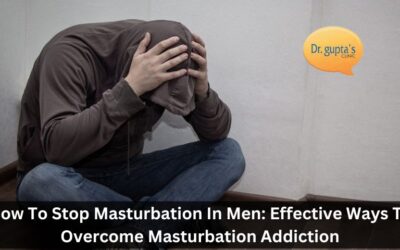Female sexual health is an essential but often overlooked aspect of overall well-being. Many women experience challenges related to their sexual health, such as vaginismus and loss of sexual desire, which can significantly impact their quality of life. This blog will delve into these two common types of female sexual health concerns, their causes, symptoms, and potential treatment options. Read on to better understand these conditions and how they can be addressed.
Female Sexual Disorder- Vaginismus
Vaginismus is a condition wherein sexual penetration is very painful and sometimes impossible. The pelvic floor muscles experience involuntary spasms during intercourse, insertion of a tampon, or gynecological exam. Physical and emotional stressors can cause vaginismus. In many cases, it can become anticipatory; it occurs because the person expects it to happen.
Some of its emotional triggers are- fear of pain, performance anxiety, traumatic life events, and childbirth experiences.
Some of its physical triggers are- urinary tract infection, yeast infection, pelvic surgery, menopause, insufficient vaginal lubrication, etc.
Female Sexual Disorder- Loss Of Sexual Desires
Loss of sexual desire is a more typical female sexual disorder. We have estimated that 18% of married women are suffering from it.
Loss of sexual desire could be due to 2 main reasons
- Hormonal or physical factors
- Psychological.
Psychological desire loss is the most common female sexual disorder, as observed by Dr. Gupta’s Clinic. Women suffering from losing sexual desire make several excuses to avoid sex. Most of them describe sex as scary, dull, or even painful. Usually, sex is a pleasurable activity. If it becomes work, then it becomes creepy and boring.
During history-taking sessions by Dr. Gupta’s Clinic, many said that they are disgusted with the sexual habits of their husbands. Some pointed out that their husbands suffer from premature ejaculation or erectile dysfunctions. Many husbands’ ejaculations occur on or before penetration, leading to a severe feeling of disgust by the wife.
The Other Side Of The Coin
Lack of intimate conversations with the husband also leads to a loss of sexual desire. Grabbing the breasts and painfully pressing them will lead to an unsavory taste for sex. Also, some women are not well adjusted to their in-law’s household, losing their desire.
Women, by nature, are vocal. Therefore, if they face a problem, they will speak it out. If the husband repeatedly ignores their concern, only then the problem arises. Sex counselors do their part in educating the couple. They tell them about proper foreplay techniques and rules. The husband should approach with light to a stronger touch, stimulating the whole body and not just the breasts and the genitalia. Lessons on talk and touch technique and non-demand fore plays are given.
Simultaneously, doctors for male problems treat problems of erectile dysfunction and premature ejaculation. Therefore, men, who avoid coming to sex therapists for any reason, are the biggest losers of blissful married life.
Get The Help You Require
In conclusion, women having female sexual disorders should not ignore and should be treated timely. A wish to seek medical and professional help and open-mindedness to go through the treatments are all it takes.
For more information, please visit the website.
Website: https://www.drguptas.com/
You can also contact us through mail on: drguptasclinic@gmail.com
Or can also call us on: +91 9831834215
Related Blogs
How To Stop Masturbation In Men: Effective Ways To Overcome Masturbation Addiction
Are you in the habit of masturbating a lot? If yes, then you are on the right page! Masturbation is a natural and healthy aspect of human sexuality, contributing to sexual pleasure and overall sexual well-being. However, when it becomes an uncontrollable masturbation...
10 Effective Home Remedies For Vaginal Discharge
Many women have white discharge, also known as leucorrhoea, which is an issue that usually affects young girls of school age. This discharge problem occurs at a certain time period of the menstrual cycle. Girls and women shouldn't worry because the amount of white...
PCOD Diet: Foods To Eat And Avoid
Many immature or partly developed eggs are released by the ovaries as a result of polycystic ovarian disease (PCOD), which leads to cyst formation. Reduced symptom severity is a primary goal of PCOD diet and therapy. Indications of PCOD include painful or irregular...




